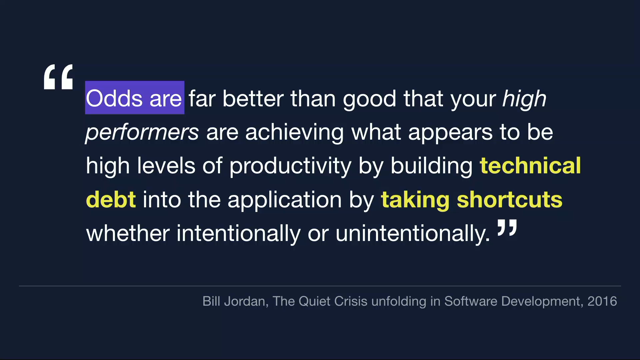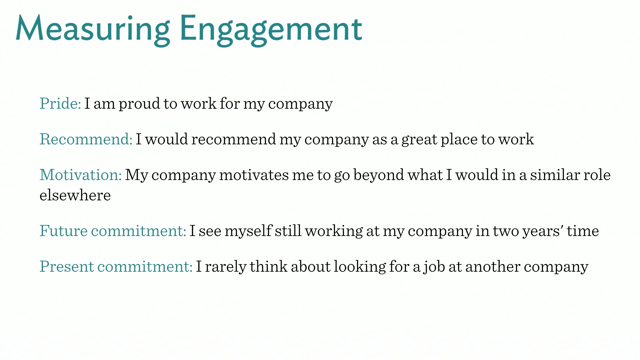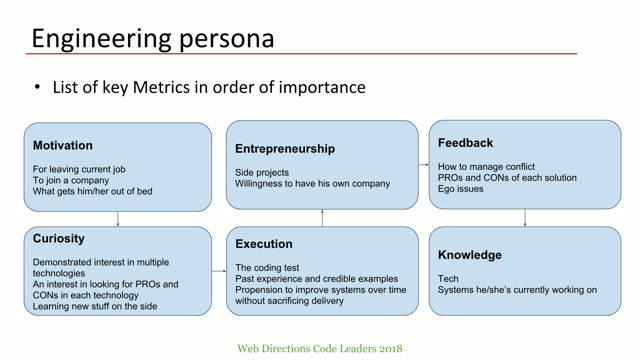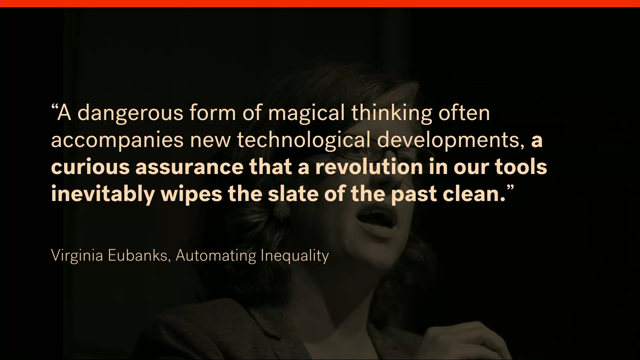Why the jump into Leadership is extra hard for people in Tech – and what to do about it

Introduction
Benjamin Wirtz begins by highlighting the importance of diverse teams and the challenges of leading individuals with differing viewpoints. He shares an anecdote about a previous leadership role where team members were at odds with each other, emphasizing the importance of effective leadership in fostering a positive team environment.
The Need for Better Leadership in Engineering
Wirtz argues that engineering needs better leaders to increase its influence within businesses. He defines leadership as taking responsibility for developing the potential in people and processes. He stresses that leadership is not tied to formal titles and encourages engineers to demonstrate leadership qualities even without direct reports.
Leaders Drive Change
The speaker emphasizes that leaders drive change and that engineering, by its very nature, is about change. He argues that engineers must be leaders to effectively implement change and make a real impact.
Leaders Are Made, Not Born
Wirtz asserts that leadership is a learned skill, not an innate quality. He shares his personal journey from a "bullied nerd" to a leader, emphasizing the importance of learning from mistakes and continuous improvement.
The Challenges of Stepping into Leadership
The speaker addresses the common feelings of being lost, faking it, and experiencing imposter syndrome when transitioning into a leadership role. He highlights the negative impact this can have on mental health and the prevalence of inadequate leadership training.
Don't Wing It - Invest in Training
Wirtz urges aspiring leaders to invest in leadership training, emphasizing the significant impact leadership has on individuals, teams, and families. He warns against the pitfalls of simply "winging it" and encourages proactive development of leadership skills.
Three Questions for Aspiring Leaders
Wirtz introduces three key questions for aspiring leaders: 1) What is the actual role of a leader? 2) How do we deliver results? 3) How do we manage the "double load"? He emphasizes the importance of understanding the fundamental purpose of leadership.
The Role of a Leader: Delivering Results
Wirtz argues that the primary role of a leader is to deliver results. He acknowledges the importance of team well-being and psychological safety but stresses that results are the ultimate measure of leadership success in most organizations.
Delivering Results: Becoming a Multiplier
The speaker emphasizes the need for leaders to become multipliers, empowering their teams and scaling their impact rather than simply adding individual capacity. He cautions against staying "on the tools" and encourages leaders to focus on developing their team's capabilities.
The Double Load: The Challenge of Leadership in Tech
Wirtz introduces the concept of the "double load," the unique challenge faced by leaders in tech who must maintain technical expertise while developing leadership skills. He explains that engineers are often further behind in people skills compared to those in other business functions.
The Triple Load: Adding Business Acumen
The speaker adds another layer to the challenge, the "triple load," which includes the need for business acumen in addition to technical expertise and leadership skills. He emphasizes that technical decisions are also business decisions and that leaders in tech must develop this understanding.
Overcoming the Challenges and Embracing the Privilege
Wirtz acknowledges the feeling of being overwhelmed but encourages perseverance. He highlights the privilege and rewards associated with leadership, emphasizing the transferable and highly valued nature of leadership skills.
Taking Ownership of Your Leadership Development
The speaker stresses the importance of taking personal responsibility for leadership development, as managers and employers may not always provide adequate support. He encourages proactive learning and seeking guidance beyond the immediate work environment.
Four Factors for Accelerated Learning
Wirtz outlines four key factors for accelerating leadership development: 1) Community, 2) Mentors, 3) Frameworks, and 4) Continuous practice. He emphasizes the importance of learning from others, seeking guidance, utilizing established models, and consistent application of learned skills.
Conclusion: Building a Better Leadership Ecosystem
Wirtz concludes by reiterating the importance of investing in leadership development and the collective responsibility for creating a better leadership ecosystem. He encourages embracing the challenge and contributing to a future with more inclusive, authentic, and resilient leaders.
Thank you, and g'day everybody.
Now there were some really important points in Andrew's talk that I just want to pick up on, especially the point about leading teams that are diverse, right?
You're an incomplete person, you need people in your team who, by default, think and act differently, have different skills, but it's hard, right?
If you have to work with someone who just doesn't really agree with you, and you still have to get the best out of them.
And, I remember starting one of my roles as a leader, sort of a CPO, CTO, hybrid role, And in the first week I had three people come to me wanting to get each other fired, which was great fun, right?
And so it probably taught me a little bit about them, but even more about the guy who was leading before me.
That situation shouldn't really exist.
We're going to talk about a couple of things here.
Now, hands up, do a bit of stretching.
If you think engineering as a function should have more influence in the business, yeah, okay, great.
There's a very simple solution to it.
We need to be better leaders, okay?
And, and, I believe the business would benefit if we had more influence, and if they understand technical debt, etc.
But we are constantly negotiating influence in the business with people from marketing and sales and HR and other functions.
Which somehow seem to have the upper hand a lot, right?
And so this talk is a little bit about why that is.
When I say leader, okay, I mean anyone who takes responsibility for finding the potential in people and processes and has the courage to develop that potential.
Okay, Brene Brown's definition.
And so it means you can be a leader today even if you don't have any formal reports.
You can have the courage to find the potential in things that your team does, or maybe should be doing, and developing that.
You don't need formal reports for that.
And in fact, you probably want to signal and show leadership capabilities before you get selected for that step up.
And you can be, when you have reports, it doesn't mean that automatically you are a leader, right?
You can take responsibility of just the administrative task, of doing performance reviews, and one on ones, and a few other things, and nothing you do is a leader.
But I believe us, in tech, and engineering in particular, need to be leaders.
Because leaders drive change.
And everything we do is about driving change.
Every line of code that gets written, means a process or something in the world now works differently.
Either we automated it, or we eliminated a task, or, we changed the life of our customers and, our stakeholders, okay?
So everything we do by default in engineering is about change.
And we have to be leaders to take the rest of the world with us.
Otherwise, it's not going to work, right?
There's a lot of code that got written that nobody ever saw that didn't change anything, right?
But if you want to get the most out of your skills and capabilities, you need to be leaders.
And there's actually a slight tweak to Brené Brown's definition, I'd say.
And that's, we also need to find the potential in ideas, right?
In ideas of features, or ways in which we can do things, or how we can hire, or how we can actually get more out of people in our team.
We constantly change things, we need to be leaders, not just managers, okay?
And we can be leaders without actually having formal reports.
Now, if you take one thing away from this talk, it's that leaders are made, they're not born.
I absolutely know that's the case.
Why?
Because I was a bullied nerd at some point.
Before I was seen as a natural leader.
That transition doesn't just happen, right?
I didn't have a genie who turned me into a leader.
That was just making tons of mistakes and really hard work.
I was stupid enough to, when I was mid twenties, raise funding for a startup and then put myself into the CEO role and decided to hire people and I was abysmal as a leader, right?
Some of the things I've done, I'm barely willing to admit.
And I didn't have any training, right?
And so . I also didn't go out, to get it and, and so that transition afterwards when my startup failed and when I realized, shit, that was probably because I was a terrible leader, I went out to get myself the education I should have gotten in the first place, still made tons of mistakes, but over time you just get better.
Leadership is a skill like any other, okay?
Just like coding, imagine, remember the first lines of code that you were writing?
They were probably not that good.
Now you're better, right?
And you've made a ton of mistakes and a bunch of bugs in production.
And so that's the point.
It's just a skill like any other.
And anyone, I truly believe that, anyone can be a competent leader.
Okay?
This is not some kind of random gift that you get given or not.
I was also a really stressed out firefighter, especially in my startup, before I was recognized as a calm and strategic leader.
I was a failed leader in my startup and in situations afterwards, where I completely lost my team, before I then built products that generated a hundred million dollars and generated great success and before I then developed people who became accomplished leaders of leaders in their own right, okay?
So I've seen this transition from wherever you are to accomplished leader over and over again, right?
And it's possible.
The question is how?
Now, the ones of you that are leaders already have formal reports, how did you feel in, say, the first three months or so when you made that step up?
Just shout it out.
Lost, okay, what else?
Faking it, imposter syndrome, yeah, what else?
Anxious, okay.
All this stuff, perfectly normal, happens all the time.
Nobody deserves that, okay?
Now, especially the imposter syndrome and just, confused and et cetera.
It can take a real toll on people's mental health, of you as a leader, but also if you're not trying to wing it in your team, they're going to feel it at some point, and it's going to have an impact on them too.
And unfortunately it happens all the time, okay.
This is the state of leadership in the world today, and it's devastating.
82 percent of leaders, of managers, are seen as just lacking in leadership skills by their employees.
Okay, 82%.
If your manager is in the room, you don't, make sure you put the poker face on, but that's really high, and I think by the looks of your faces that you know someone who is like a manager right now and probably shouldn't be, okay?
Different study, exactly the same numbers, surprise, 80 percent of new managers don't get any training.
Do they fit together?
Probably, right?
And then the next thing that happens is, 87 percent of leaders wish they had more training, but somehow they're not getting it.
Is anyone here on their own dime, or are you all paid by your company?
Yep, yep, okay, great, awesome.
Now, unfortunately that's how the world works today, alright?
And we're going to go a little bit into why, but, you're not, your, employer, your company, et cetera, they might not take care of you in that journey.
You might have to take care of it yourself.
And it's going to be worth it.
Okay?
Because today, about half of middle managers are basically ready to quit it in the next 12 months because they're experiencing so much stress.
Why?
Because they've never been given the tools to succeed in the first place.
It's ridiculous.
We accepted this as normal, right?
I know a ton of engineers, designers, product managers who made that step up into leadership.
It weren't given any guidance or support.
Their manager said, oh yeah, you're great, you're gonna figure it out.
And somehow we've accepted that, okay, I guess that's just how it works.
We shouldn't, honestly.
I'll give you an example.
Would you take a grad, fresh out of university, give them access to your prod environment, And just tell them, cool, go write some code and push it to product, we'll see what happens.
And then blame them if it goes wrong.
No, I hope the answer is no.
Okay?
And the difference between that and taking someone into a leadership role and, telling them good luck is that the grad actually has three years of training.
Okay?
Leaders don't get any.
So are we surprised that they're feeling stressed and that sometimes they just, mess it up?
I don't know.
Shouldn't be.
Leadership is a skill like any other, right?
And I'm going to appeal to your heart here for a second.
Don't just wing it.
Even if you get given that opportunity and it's a great honor, don't just wing it.
Invest in training, learn this skill.
Because everything you do and how you do it is going to have an impact.
On your own reputation and your own future career, your mental well being, right?
And your family, because most of us, let's face it, stuff that happens at work, somehow we bring it back home, okay?
And it's gonna be exactly the same for your team.
The impact that you're gonna have on their careers, on their mental well being, and on their families, is immense.
And a lot of people don't realize that.
Just winging it isn't good enough.
Also because, you're gonna end up like me at some stage and just end up being in a firefighting hamster wheel and it just doesn't feel very nice.
Okay, there's three questions you can ask yourself to get out of that.
Okay?
Those questions applied to me, whether I worked in organizations of two people or 200,000 people, right?
Whether it was a dinky startup or Google and Atlassian.
And, it didn't matter whether I was leading a team through six weeks of them not getting paid and trying not to lose anyone, which was another great fun story, you can ask me about it later, or whether you're leading a really high performing team.
Still applied.
The first question is, what's actually the role of a leader?
Okay?
Now, clearly the answer is lead a team, duh, it's in the team, it's in the title, team leader, whatever, right?
But that's not what I'm talking about.
By the way, I'm COVID negative, but I may have a little bit of a cough, I'm sorry.
Okay, so first principles.
Why did you get promoted?
Why did anyone have to get promoted into this team lead role, right?
Why does this role even exist?
I give you a hint.
It's not to lead a team, okay?
That's not the reason.
We're in capitalism, right?
So this is not quite it.
We might put a bunch of labels on it, and we might tell you, I don't know, your role is to build this product as a team, so go and do that.
But that's not really the reason.
I'm going to abstract from here, okay?
Your, the reason your role exists is to deliver results.
The organization has a certain set of goals that they want to achieve to make their shareholders happy, etc.
And as Andrew mentioned, you need to, get an understanding of how that works at some point, but they need someone to take care of a bunch of resources, those are the people in your team, to get to the outcome.
That's it.
Okay?
There's going to be a whole bunch of stuff that you're going to read, and it's all really well intentioned about how you should be leading the teams and psychological safety and all that stuff, and that's all really good and really important, but in many organizations, in most organizations, today, the be all and end all of you as a leader is the results that you're going to deliver.
If you do a fantastic if you do fantastic work with your team, they love you as a leader, absolutely adore you, think you're the best thing since sliced bread, and you don't deliver results, at some point you're going to get moved along.
Okay?
Whereas, we all know, the people that treat their teams really shit, but deliver results, they get promoted.
Shouldn't be that way.
Not personal, it's just capitalism.
Okay?
And unfortunately, we all have to make do with that.
There's some really great thinking, by the way.
I don't want to advocate for this approach too much, right?
It's just how it works.
It's just the hard truth.
But there's some really great thinking happening at Google and in other places about how we should be rewarding effort rather than actual results, because results mean people just play it too safe.
But in most organizations today, that's not how you'll get evaluated, right?
Most of the leaders aren't going to change everything about how the organization works.
They don't want to take that risk.
Results are going to be it, for the time being.
Now the question is, how do we deliver results?
Here's the crux.
As a leader, you probably, you're all very competent, and you can probably burn the midnight oil if things, if push comes to shove, and, we can get the job done.
But that's not the best way of actually delivering results, because as capitalism, the results, they're going to ask you to achieve this year or this quarter.
Next quarter, it's going to be more, and it's going to be more, and it's going to be more after that.
If you want your career moving forward, you need to find a way of delivering more over time.
And you need to work through other people.
You need to influence, you need to motivate, you need to empower, you need to delegate.
And you can't really do that by just trying to be one of the people in the team.
You need to learn to be a multiplier.
And this is the situation I see happening.
All the time, especially in engineering.
And it's that people make the step up into leadership, but then it's hard, right?
And it feels uncomfortable.
And there's so many things that we should be doing, could be doing, but actually, wouldn't it be so nice to just write this piece of code and get it out there?
Yes, right?
That's where we feel home.
That's, it's our brain, right?
That's where we get the little dopamine hit.
I solved a problem, I know for sure, nobody else has to solve that problem ever again.
It feels great.
It's just not how we add the most value, right?
The more time we're trying to stay on the tools, the less we're keeping our eyes ahead of the, on, on, what's ahead on the road, okay?
And, we're doing our team a disservice.
Just trying to be one other person and thinking we're doing the leadership thing on the side just means we're an adder, right?
We may add 20 25 percent more capacity to our team.
Maybe we're even really great and, a really difficult task comes along and we say, Ooh, yeah, I'm not sure if, the rest of the team would get stuck at that.
I'm gonna do it.
Every time you do that, you deprive your team of development opportunities.
Okay, and you're going to get stuck in this, mode, in this hamster wheel of firefighting because you've established yourself as the expert, the authority, and you're not really getting the most out of your team.
So instead, you want to do this, okay?
You want to create out of your team something that's bigger than the sum of its parts, right?
And you want to empower them and grow their capability and the capacity of the team.
And that means you really need to embrace that role as a leader.
And it doesn't happen if you're trying to stay hands on 80, 90 percent of the time.
Okay.
All that's going to happen is everyone's going to be really stressed.
You're not going to see some problems coming along.
You're not going to spend time with your stakeholders and the rest of the business to protect your team from the things that it needs protecting from.
And everyone's going to get stressed the whole time.
So this, if you can do this on the right hand side over and over again.
That's scaling yourself, and that's scaling the team, and that's scaling your impact, right?
So becoming a multiplier and a bigger multiplier over time.
That's what you want to do.
But before you can do that, you need to learn to manage what I call the double load.
And that's the reason why leadership in tech is extra hard, and what I feel like isn't getting not acknowledged enough by HR teams or even by us in tech, right?
Somehow we have this idea that people should be leaders and it's easy.
But where we are in engineering in particular, it's actually the furthest away from like practicing good leadership that you can be.
Why?
Venn diagram, right?
On the left hand side, the things that you need to be a good engineer.
On the right hand side, the things you need to be a good leader.
And Andrew touched on a few of those already.
If you're purely leading your team with the expertise you've got in your craft, and by being the authority and making the hard decisions and being the person who sweeps in to solve the difficult things, you're doing yourself a disservice, right?
You're using your expertise as a crutch rather than being a good leader.
And it falls down, as Andrew mentioned as well, at the point where you need to lead people.
Where you're not an expert in what they do, right?
If you're a backend developer and you now need to lead frontend developers as well, you can probably meddle your way through it, but you can't lead through just expertise and craft, right?
Because you might not understand the frameworks and everything just as well.
And if you're then starting to lead designers or QA or like other functions, you're stuck.
The skills that you've learned throughout your career, in engineering, all about solving technical problems, abstract and creative problem solving, okay?
But what you need as a leader is to solve people's problems, right?
And when you deal most of your life with machines, and suddenly you have to deal with those bloody humans, right?
Have emotions and all that stuff, then trying to transfer all of your skills to do the other thing isn't going to work.
You definitely have transferable skills, and I know Rick and Andrew are going to talk about this later on as well.
But the gap is so much larger.
Whereas if you think about sales and marketing and HR, they've been solving people problems all their career.
That's what they do, right?
But you're the specialist who's been focused on solving machine problems.
So solving people problems now is very different.
Not everything is going to apply.
You can't treat humans like machines.
I know, duh, right?
So we're further away from this.
We have a larger gap to, to close.
As a bit of a visualization, right?
You do coding, you do architecture, security, et cetera, all that as an engineer.
And suddenly you need to motivate a team.
You need to manage up, manage down, manage sideways.
Convince the marketing team that, no, we shouldn't put a button there that does that because it's stupidly hard and it's probably not going to give us the conversion rate that we're looking for.
I've done this before.
You have all sorts of other activities during your day that you need to do.
And you have to make time not just to do them as a leader, but also to learn how to do them well.
Because you're now sharing the room with black belts in this.
Okay?
That's where the bar sits.
If you're a new leader, and you're starting to have these conversations with all the other functions, right?
Of course, you're not going to have the same, it's not going to be a level playing field, right?
And that's partially why us in engineering often struggle getting the influence that we should have in businesses because we're so much further behind, right?
It's a real gap, and it's, that's what makes it extra hard, because HR, and like the other functions, they're not going to make excuses for you.
Oh, you're an engineer, so I guess it's fine if you don't quite meet the bar.
You absolutely need the bar.
There's going to be a standard of leadership across the business, and you're going to meet it, and you need to learn how to do that really fast when you make the step up, right?
There isn't going to be much time.
By the time you step into leadership role, you're basically on probation again.
For the next six months, right?
I see Andrew saying yes.
That happened to me.
That happened to me too.
Andrew touched on this a little bit, already, right?
But, when an individual contributor, life is simple.
You've got one master, you just do as they say, you get better at developing your craft, you deliver, your goals, right?
But then, to be even considered for the next step in your career, you need to signal, you need to show that you've got the potential at least, or some of the skills that you need to be a leader.
So chances are, it's good that most of you are here today, but today is only one day, right?
If you're, if you want to get onto that leadership path, you need to continue to invest in that, right?
In fact, Andrew gave you homework already, I'm going to give you another one.
After today, one of the most important things you can do for your career if you want to get into leadership, is to share about the conference.
Bloody take pictures of my slides and share them on LinkedIn or wherever that, this was useful.
Take other pictures if it wasn't useful, but, but, signal that you are engaged in the process of wanting to become a leader and learning those skills, okay?
That's super important for, your manager, the people who might wanna, might wonder whether you could be a good manager and the HR teams and anyone else.
So then when you are a leader, your role changes completely, as we already discussed.
And partially you need to develop other leaders and you need to protect the team and get the most out of the team.
If you want to go one step further, instead of being a leader to, of course, being a LOL, a leader of leaders, you now need to develop other leaders, right?
So you need to have a certain competence in being a leader and showcasing that already to be considered for that step, right?
So you always need to be a little step ahead.
So if you want your career moving forward, you continuously need to invest into that skill that you're, again, much further behind than lots of other people in the business.
And that's what I call the double load, right?
Because you can't give up on investing in your leadership skills.
You can talk to Craig about this afterwards, but even at SVP or CTO level, you still need to be an expert in your craft.
You're expected to, right?
There's no CTO today who can make excuses for not knowing about the cloud or about machine learning or literally anything else, right?
You're still expected to have a certain competence in that, and in fact, the engineers that are working under you probably expect you to have a certain competence in staying up to date in your craft as well, right?
So you can't give up on it, but at the same time you need to learn this whole new skill, right?
That's hard, and unfortunately it's going to get even harder, and Andrew alluded to that as well, because at some stage you're going to realize that, every technical decision we make in the team is also a business decision, right?
How we design the architecture, whether we tackle this technical debt or that technical debt, everything is a business decision.
But if business wasn't part of your degree, again, you're up against black belts, alright?
In sales and marketing and other functions.
They know business inside out.
They've also been doing it their whole career.
So now you've got a triple load, right?
It probably doesn't matter at the team's, team lead level, right?
But certainly at a leader of leader level and further.
You need to understand it.
Who feels overwhelmed?
Okay, a couple of people.
Okay.
I know it's hard.
I know it seems hard.
I know today is going to be a lot.
And you're going to come away from this thinking, geez, is this really for me?
And that is a good question to ask.
Okay?
Because it means you're taking this seriously.
You've taken the step to say, actually, yeah, I shouldn't be winging this.
It's going to be a lot, and I don't want to risk my mental health or my team's mental health, for that.
Okay?
But at the same time, I don't want you to give up either, okay?
And I say this kindly but firmly, stop the pity party, okay?
Yes, it's hard.
Yes, we're up against it, okay?
But there's no point if we want influence in the business and in this world to say, okay, I'm going to opt out of that, okay?
It's hard, but it's just capitalism.
It's just we have to deal with it, okay?
And everyone else has to deal with it too.
And also, and this doesn't get talked about enough, Leadership is privilege, okay?
You're going to have privileged access to information, to, the way you can make decisions, the way you can select your team, right?
And you're going to need to learn how to wield that power, and yes, it's going to be pressure.
Learning to deal with that means you're going to learn one of the most transferable and best remunerated skills that there are.
Okay?
It's worth it, and, your impact in the world, you're going to, you're, you'll get to scale as well.
But at some stage, the same bar is going to apply to you as anyone else in leadership, and you're going to get benchmarked against that, not just against other leaders in tech.
So here's another thing.
You might think, it's going to happen naturally, my manager or my employer, surely they're going to take care of me.
They've paid for the conference ticket for most of you, right?
So something's there.
But the truth is, it's the hard truth, right?
I'm here to tell you the truth, not to just make you feel good.
Your manager and your employer just aren't equal partners in your career.
And I'm not advocating for it, but in most cases, the, the, expectations of leaders is, if you want that, if you want this privilege, if you want the paycheck, if you want that, influence and that impact, you're going to have to go out and, get it and do something about it, right?
Your manager might be someone who seems very invested in, mentoring you and in developing you, and that's awesome, and kudos to all those managers who really take that seriously.
Not everyone is gonna do it, right?
And you might end up with a different manager at some point.
And and if you have that reliance on your manager to develop you and to tell what's wrong, it's going to create problems at some stage.
And besides your managers the one deciding about your performance reviews and salary raises and all that stuff, do you really wanna bring all the little problems and niggles and failures and everything to them?
It's really hard to actually be like fully transparent and, feel completely psychologically safe with your manager.
Nobody should get promoted without it, but at the same time, your employer, without that support and guidance, but at the same time, your employer just might not take care of you, and, and just assuming that they should doesn't make it better, unfortunately.
Not that I'm advocating for that, it's just how things work right now.
Now, what can you actually do to manage that double load, and to come up to speed really fast?
Now, luckily, Most of us, especially the ones here today, are very curious individuals, right?
We like asking the hard questions, we generally learn really fast, otherwise we couldn't have done half the coding and learning all the skills that we got so far.
We need to find just the fastest way of leveling up.
Okay, and so the science of how we as adult humans learn new skills is very consistent.
Okay?
And there's four factors.
I'm going to talk you through all of them.
And you can DIY this afterwards, you can get yourself help.
Doesn't matter how you do it, right?
But keep those four factors in mind.
And in fact, it's not just the science and how we learn new skills.
I worked in health tech a bunch.
How do you solve the problem of someone having to, having a chronic condition and learning how to manage that with an app?
So in cancer, in addiction, in menopause, funnily enough, right?
So there's a lot of apps out there in health tech that try to get you to change your behavior so you can manage your medical conditions better, right?
And they all have the same patterns.
And it's basically derived from the same science.
The first thing we need is a community.
And I hope this will make sense to most people, right?
Where would we be without coding skills if we didn't have Stack Overflow?
Where would software be today without GitHub?
We need to swap notes with other humans, right?
And in fact, just to know, that's what I, from the, cohorts, leadership development cohorts that I run, one of the big things that comes out of it is a lot of people saying oh, gee, I'm so glad that I'm not the only one who has this problem, who feels like that, who got stuck at this point, knowing that you're not alone, you're not crazy, you're not an imposter, super important to, keep going on this journey, right?
And I'd love to say, here's a bunch of leadership books and you can just read them.
But, you're still going to have the feelings like, I don't know if I can do this, right?
So connect with other humans, not just mentors, but also a community, so you don't give up.
Of course, mentors, as Andrew mentioned as well, are really important.
Why?
Because they're going to have your blind spots.
They're going to help you uncover the unknown unknowns, right?
Think back to when you first started coding, right?
Someone would have told you that, hey, indentation helps you make your code more readable.
Use tabs over spaces because everything else is stupid.
Okay, maybe we discuss this one later, but, object oriented programming, right?
All the things that you use today, chances are someone's shined, shown a light on, hey, this is how you code right now, here's a better way, to help you figure that out.
Yeah, mentor, super important.
It'll take you years of just making mistakes and like stumbling through the dark if you have that outside guidance.
The other one is frameworks, right?
Sure.
Who doesn't love writing their own authentication system and, and, front end frameworks and everything?
But realistically, if you learn how to code, it's not a bad thing to try Ruby on Rails and to try React, right?
Because you're gonna get stuck with a bunch of best practices.
You might not like all of them, but they're gonna get you much further than if you try to write everything from scratch, right?
And so it's the same with leadership.
Why reinvent the wheel?
So we've been studying leadership for thousands of years.
And it's gotten a little bit different over time.
We need to be a lot more inclusive today.
We, we can't do all the things that they did, in the 60s, but that's a good thing.
But, but leadership itself and how the human brain works is not novel.
So don't try to reinvent the wheel and just wing it.
Okay?
And and so the last thing is just continuous practice.
Now, I really like that Andrew was giving you guys homework.
And I'm going to double down on that and say get as many runs as you can at anything related to leadership.
Ideally.
You can do it in some kind of sandbox environment, right?
Like we did with code.
We would prefer the grad that we hired to write a little bit of sandbox code or local machine code first and we test it in a separate instance and then just pushing to prod, right?
Because we're gonna make a bunch of mistakes, right?
And ideally we don't make them in production.
I wish I had a sandbox for my leadership much earlier than I actually did because then I didn't have to make all the mistakes in production.
That's a little bit, you want, this to be consistent, right?
It's a little bit like going to the gym, flexing your muscles every once in a while.
If today is all the leadership development you're going to do for the rest of the year, It's not much, right?
For learning how to code, if you go to a conference, where mostly you listen one day a year, the rate at which you improve at coding is not gonna be super fast, right?
Whereas the challenge that you have is you need to improve really fast.
Obviously, we package that with scalable leaders into sort of a nice thing that's ready for you.
But you can absolutely DIY this, right?
There's lots of other solutions out there.
And whatever you do, those are the four factors.
That, will help you learn faster than if you just try to, wing it over time.
And, the reason I've, started this and the reason I give these talks is because I absolutely want the leaders of tomorrow to be better than the ones from yesterday.
Okay?
When I saw a lot of people nodding about, yeah, managers that, seem to be lacking in leadership skills, ideally we don't have that situation anymore in five, ten, twenty years time.
Okay?
And you're all going to be part of that.
So So take it seriously, so we can have more inclusive, more authentic, and more resilient leaders.
Now, that's pretty much it.
Just a quick recap.
The three questions, okay?
What's your role as a leader?
Know that it's about, it's going to be about results and how you deliver them, but you're not going to get there if you don't try to think of yourself as a multiplier and learn how to do that properly and how to work through other people, alright?
And learning how to scale yourself and doing that over and over again means managing the double load, the triple load.
And just learning really fast and setting yourself up for that.
Now, one last thing, I know it can still feel hard, despite you not having a framework to tackle this.
If it was easy, none of us would be here.
Okay, that's what I always tell my teams.
We're here, and you've gone so far as engineers, because you're curious, you love a challenge.
This is just another one of those.
It will feel a little bit harder at the beginning, because it's a little bit like having to go back 20 years or so and learning to code from scratch or learning a new instrument, but it's just another skill and it's going to get easier.
Okay, with that, thank you so much for joining today and investing in yourselves as leaders, because that's what's going to build a better ecosystem for us.
That's super important.
Thank You
If you’re a manager in Product, Design or Engineering, you need to be a Leader. But why do so many Leaders end up firefighting and stressed out? What makes Leading Teams in Tech harder than other areas of a business, and how can you set yourself up to succeed (or at least survive)? It’s all about asking yourself 3 simple questions – join us to find out.















